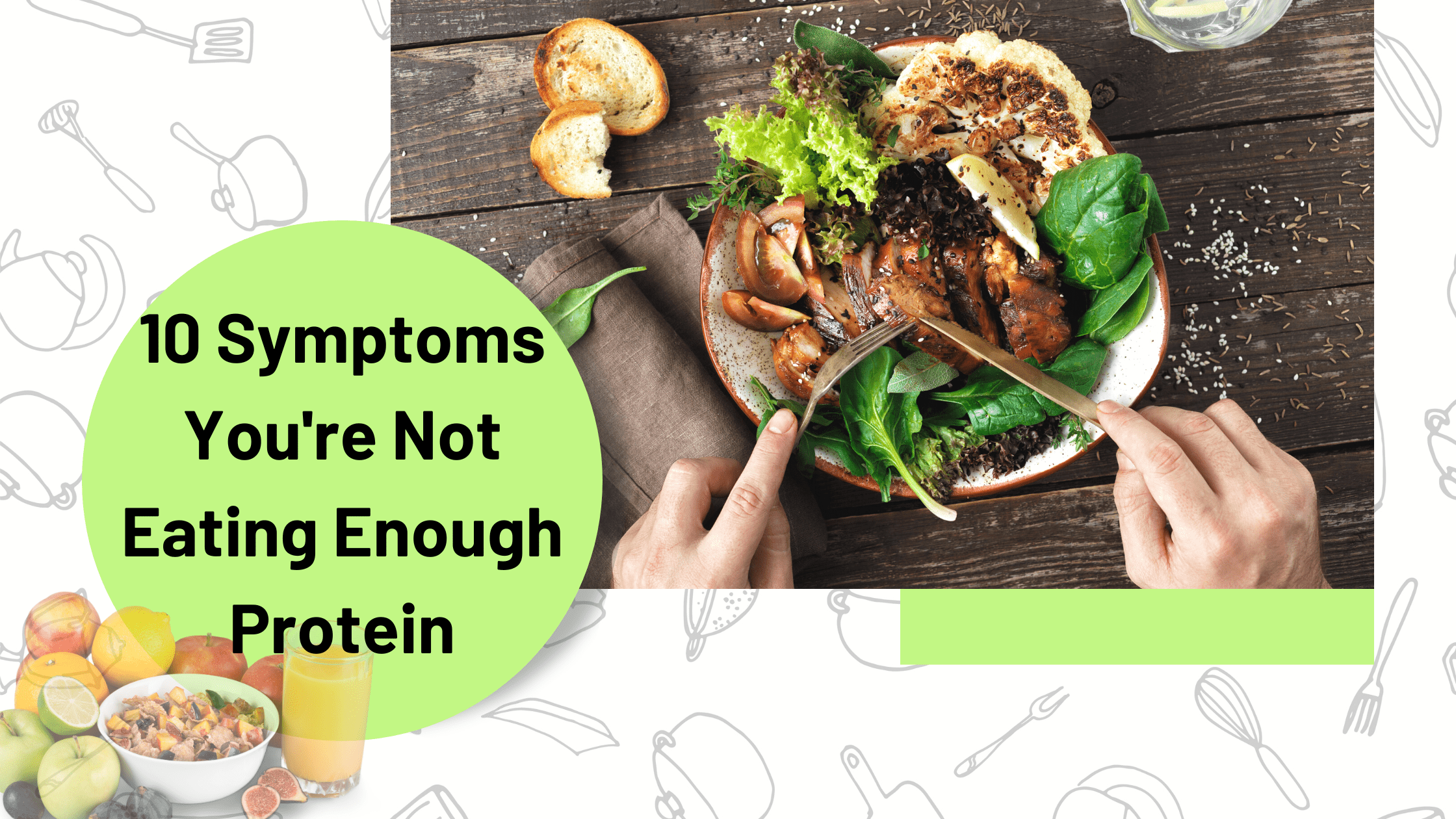Health
10 Symptoms You’re Not Eating Enough Protein

Many bodily functions are dependent on protein, which is an essential nutrient.
The body builds and repairs tissues produces hormones and enzymes, and maintains the immune system as part of this process. Not consuming enough protein in your diet can have various negative effects on your health and well-being.
In this article, we will discuss 10 symptoms that indicate you may not be getting enough protein. And the importance of incorporating protein-rich foods into your diet. Whether you are an athlete looking to build muscle or just trying to maintain a healthy lifestyle. And understanding the signs of protein deficiency is crucial to maintaining optimal health.
Table of Contents
Feeling Constantly Hungry, Even After Eating
Feeling constantly hungry, even after eating, is a common sign of protein deficiency. Protein keeps you feeling full for longer, and not consuming enough of it can cause overeating and difficulty managing weight.
Muscle Weakness & Muscle Loss
Muscle weakness & muscle loss can also be a sign that you’re not consuming enough protein. Protein is essential for the growth, repair, & maintenance of muscle tissue. And not getting enough of it can cause your body to break down muscle tissue for energy.
Fatigue And Slow Recovery After Exercise
It is because protein is essential for muscle recovery and the production of energy in the body. A small tear in the muscle fibers occurs when you exercise. Protein helps to repair and rebuild these fibers, which is necessary for muscle growth and maintenance.
Mood Swings, Irritability, And Difficulty Concentrating
Protein plays a role in producing neurotransmitters that regulate mood and cognitive function. Not getting enough protein can lead to imbalances in these neurotransmitters, which can affect your mood and ability to concentrate.
Thinning Hair, Brittle Nails, And Dry Skin
Protein is essential for the growth and maintenance of these tissues, and a deficiency can lead to thinning hair, brittle nails, and dry skin. Protein is necessary for producing collagen, a structural protein that provides skin with elasticity and strength, and keratin, a protein that comprises hair and nails.
Weakened Immune System And Increased Susceptibility To Infections
If you’re not consuming enough protein, your immune system may become weakened & you may be more susceptible to diseases and illnesses. It can lead to more frequent colds, flu, and other diseases, as well as slower wound healing and recovery from illness. To support a healthy immune system it’s crucial to consume enough protein in your
Slow Wound Healing And Recovery From Illness
The immune system is responsible for protecting the body against infections and illnesses. If you’re not getting enough protein in your diet, your body may not be able to produce enough antibodies and other immune system components to fight off pathogens effectively.
Swelling In The Legs, Feet, Or Hands
Protein is essential for maintaining fluid balance in the body, and not getting enough protein can lead to fluid accumulation in the tissues, causing swelling. There may be a feeling of heaviness or tightness in the affected area along with swelling. If you’re experiencing swelling in your legs, feet, or hands, it may be a sign that you’re not consuming enough protein in your diet.
Trouble Sleeping Or Insomnia
Protein helps produce neurotransmitters like serotonin and melatonin, which regulate sleep and promote relaxation. If you’re not consuming enough protein, you may have trouble falling asleep or staying asleep, which can lead to feelings of fatigue and daytime sleepiness.
Increased Cravings For Unhealthy Foods
If you often crave sugary, salty, or processed foods, it may be a sign that you’re not getting enough protein in your diet. Protein helps regulate appetite and reduce cravings.
To avoid these damaging effects of protein deficiency, incorporate protein-rich foods at every meal, such as lean meats, fish, eggs, dairy products, beans, and nuts. Depending on your age, gender, and activity level, aim to consume at least 0.8 grams of protein per kilogram of body weight per day. As long as your body receives enough protein, you can support your body’s vital functions and maintain good health.
Read more – 3 Common Therapy Treatments in 2022

-

 Business3 years ago
Business3 years agoHow to Do Long-Distance Moves with Children
-

 Travel2 years ago
Travel2 years agoQuick Guide: Moving To Santa Rosa?
-

 Real Estate3 years ago
Real Estate3 years agoWhy Dubai Festival City is a Great Neighbourhood for Young Learners
-

 Business3 years ago
Business3 years agoIs Guest Posting a Good Inbound Marketing Strategy?
-

 Business1 year ago
Business1 year agoThe Ultimate Guide To Thriving In Your Printing Franchise
-

 Business1 year ago
Business1 year agoExploring The Benefits And Challenges Of Restaurant Franchising
-

 Tech3 years ago
Tech3 years agoCyber Table That Will Change Your Life
-

 Lifestyle1 year ago
Lifestyle1 year agoDallas’ Hidden Gems: 6 Must-Try Restaurants Off The Beaten Path!





















Recent Comments